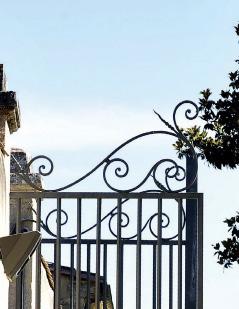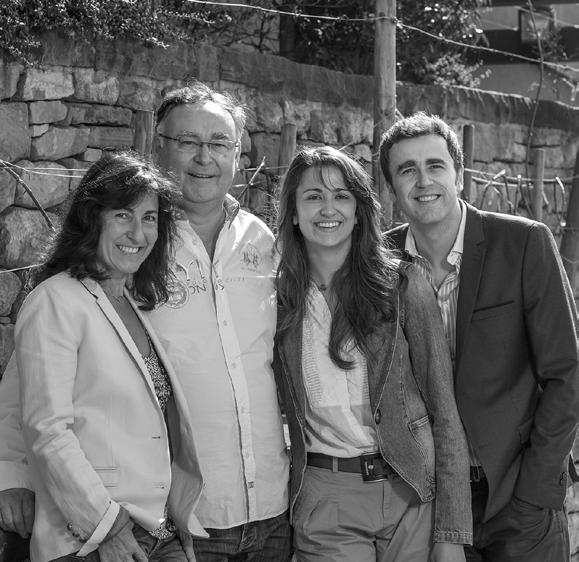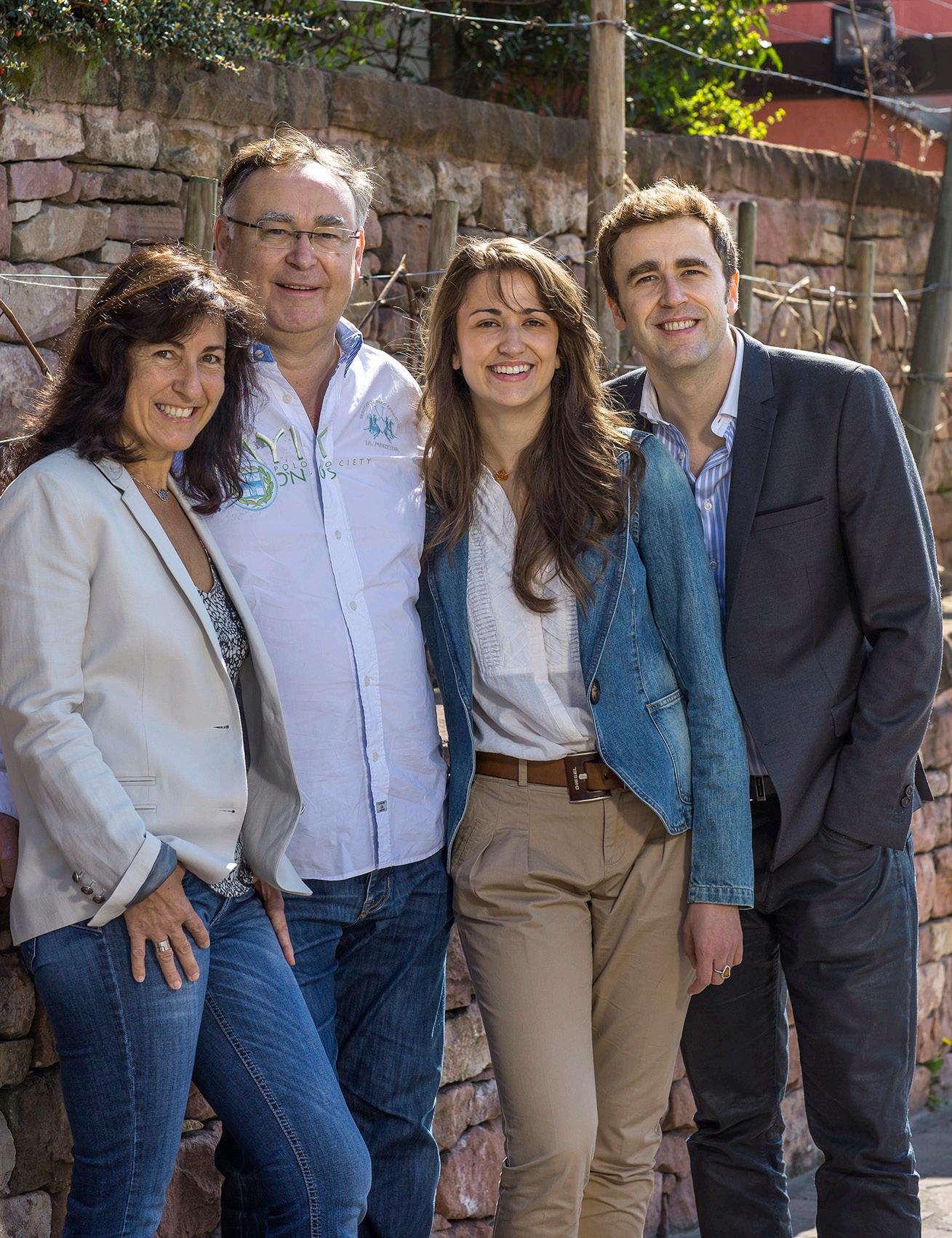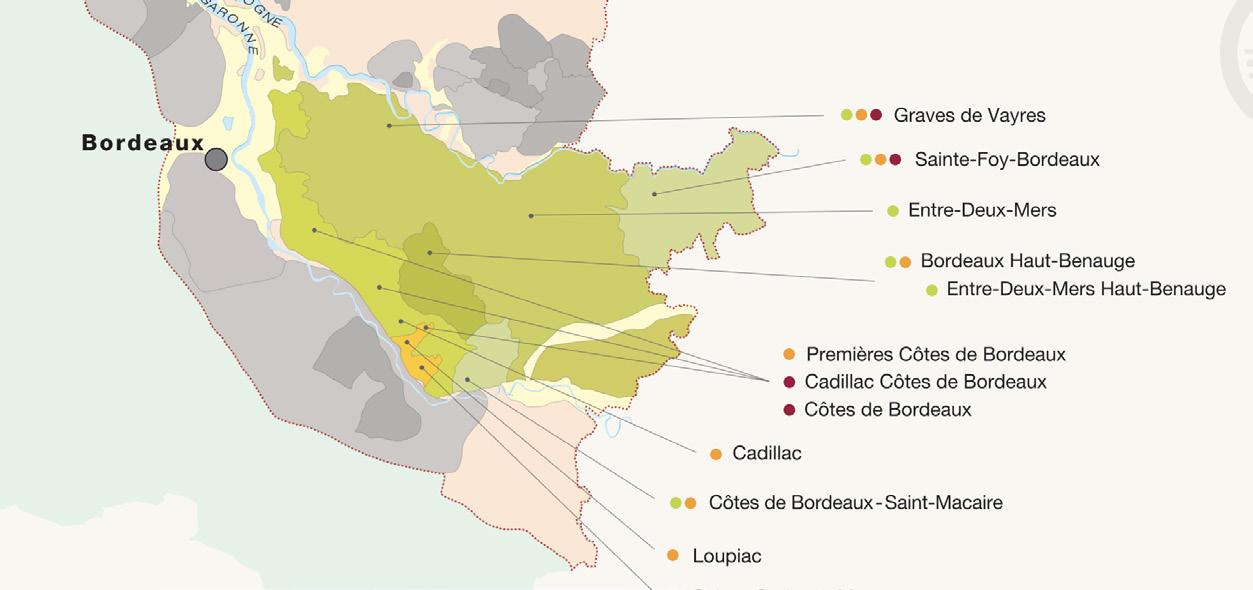
3 minute read
GRANDS CHAIS
from Earth Day Heroes
by gregoryvine
Grands Chais de France (GCF)
AOC Entre-deux-Mers
Founded in 1979 in Alsace by Famille Helfrich, Grands Chais de France (GCF) is one of the most prominent wine merchants in France. The company has more than 2,500 employees and is the largest exporter of French wines worldwide, representing more than 20% of French wine exports to 177 countries. GCF first established their Bordeaux business in 1994 and now manages more than 1730 acres of vines throughout the region, including 2 Crus Classés and 2 Crus Bourgeois. The company’s Bordeaux bottling and logistics center is one of the largest, most modern and efficient operations of its kind. GCF considers it a privilege to represent French wine and terroir around the world–it is the company’s raison d’être–and sustainable best practices are key to their business model.

FAMILLE HELFRICH (Joseph, Laurence, Frédéric, Anne-Laure)

Global Reach Means Global Impact
GCF’s global reach allows the company to significantly impact the well-being of their consumers through the reduction of harmful additives and other environmental best practices. GCF has attained numerous certifications for their products (including HVE, BIO, Committed Winegrowers, ISO14000 and Energy Management ISO50001) through a decisive environmental commitment to reduce consumption of scarce natural resources. The company believes that respect for the environment is central to their consumer approach and corporate governance. Employees drive environmental action through meaningful Sustainable Development and Corporate Social Responsibility initiatives that promote quality products and a quality workplace.
Château du Bois Chantant 2018

Proactive Initiative for Real Results
Proactive management policy is key to sound environmental practices at GCF. GCF’s vineyards in Bordeaux are equipped with their own weather stations specially designed to manage vine health and optimize treatments. To cite one measure, GCF has reduced their IFT levels (Phytosanitary Treatment Frequency Index) by more than 34% as compared to the French national average. In addition, herbicide IFTs represent less than 10% of treatments, while bio-friendly IFTs account for over 50%.

Training the Team
Quality of life on the job is highly valued at GCF, and sustainable training has emerged as a key perk for employees. Over the past decade, more than 500 people have been trained intensively on the bottling lines (on average 35 hours per week for 3 to 4 weeks), afterwards receiving a Professional Qualification Certificate (CQP). The training encompasses energy conservation efforts that engage employees in direct action such as the systematic control of cooling units and boilers and recycling up to 90% of waste through facilities such as the company’s wastewater treatment plant in Bordeaux. Employees also contribute to high performance bottling and logistics facilities at Landiras and Petersbach to manage more than 70% of transportation and product delivery with incredible efficiency. GCF is well-known for their freight consolidation efforts or “piggyback transport,” which account for container shipments chartered by the company.
Over a Decade of Environmental Action
GCF has pursued responsible policies for more than a decade. The company’s goal is to improve quality through sustainability. All of this is made possible by training and involving their employees in every aspect of responsible environmental practices from vineyard management to logistics and product distribution. GCF advises others to center their environmental approach firmly in CSR to succeed. The company believes that environmental actions contribute directly to the social good and sets high internal standards as part of their dynamic corporate culture. GCF’s global presence allows them to put meaningful action into training and share their strong environmental results for all to learn and forge a better path ahead.











